The Bossy Sloth. A Fable
Greetings, Steemians. Making a parenthesis of my commentaries on post-colonial literature, I want to veer towards another interest of mine: children's literature, and offer for your consideration this fable, inspired by recent events in my dear Venezuela, specifically in my agonizing university (UDO).
I had a great time writing it. I was inspired by Dr Seuss's playful rhymes (although I cannot say I honored his craft here. I do not consider myself a writer in the creative sense). I have taught The Lorax in some of my children's lit courses and i found its premise still current, with a twist. Also, I found inspiration in Eve Bunting's great allegory (Terrible Things). I hope you enjoy it.
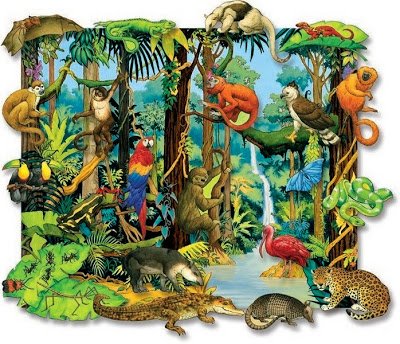 Source
SourceThe Bossy Sloth. A Fable
While there is life, there’ll be rhyme
Once upon a time, deep in the Venezuelan forest, there lived a large family of animals (or so they called themselves). There was a great variety of them and, even though they took pride in their alleged equality, their differences emerged more often than not.
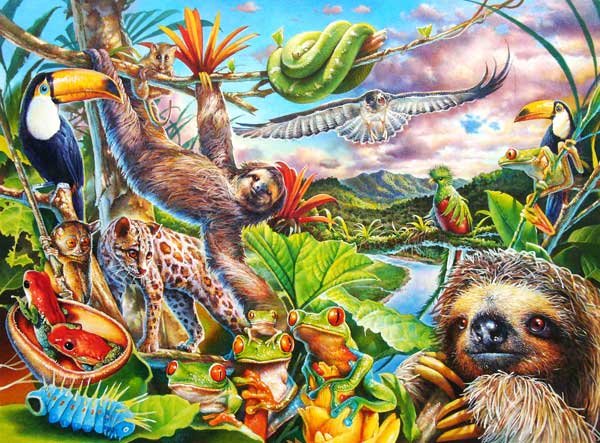 Source
SourceThere were small animals, like lizards and bugs; big ones, like manatees and dogs; pretty ones, like foxes and macaws, and some not as pretty, like wild pigs and frogs. Some animals were fast, like the hare; others were slow, like the sloth; some were smart; others were not. Some, like the yellow-rumped Cacique, had nicely hung houses on top of the trees, so all other houses were lower than his; while down in the mud, in holes deep and dark, the blue crabs would sing louder than the lark. At the end of the day, they would all have a good time, giving their world its swing and its rhyme. Twice a year, around a clearance they would gather to eat and drink till dawn was near, celebrating the sun’s laughs or the clouds’ tears.
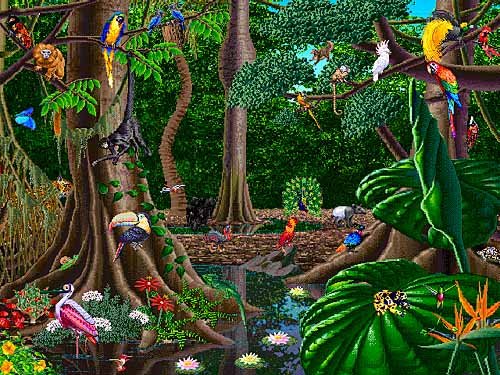 Source
SourceThey were happy, but they did not know it; although their faces surely showed it. Hoping for better things to come, but not knowing what they wanted, they did not do or think much about it. They begged so much for better things to come that one day a Thing in the middle of the forest stomped.
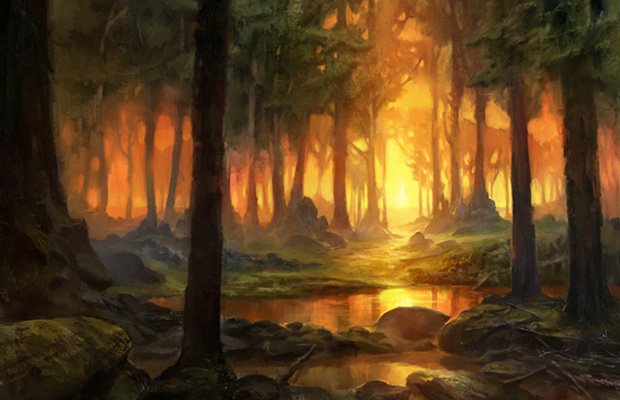 Source
SourceIt looked better than anything he had seen before, said Mole. It sounded better than anything she had heard before, said White Cat. What it was they did not know, but it certainly put on a show. Tiger thought it was a little bit roary, Snake found it a bit slithery, Hedgehog felt it was somehow gory, while Catfish sensed it could be slippery. However, some ants and owls were weary and found it rather scary. They asked Sloth, who was poised and circumspect, what they should do with such an unexpected guest. Sloth took his time, as all sloths do, and finally declared it welcomed in a hoot.
And so, the Thing started to live among them without showing his real face, and little by little, like playing a fiddle, it enchanted most, driving them out of their ways. It changed their looks, it changed their food; it changed their walks and even their talks. Their habits it changed so much that, after a while, they were they no more. It changed their paths and their surroundings all under promises of better findings. But, cried Chachalaca, “Here is the thing about all things new, when not thought out or understood: if after burning the forest is not better, you’d better run and wet your feathers.”
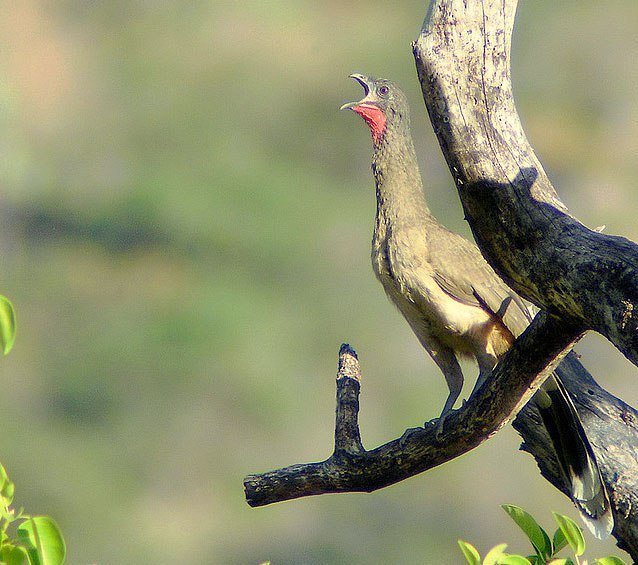 Source
SourceChachalaca tried to group other vocals to stop the Thing, but many animals, especially the sloth, the turtle and the toad took their time to decide whether to resist or not. As they waited for help they saw the forest wane and fade.
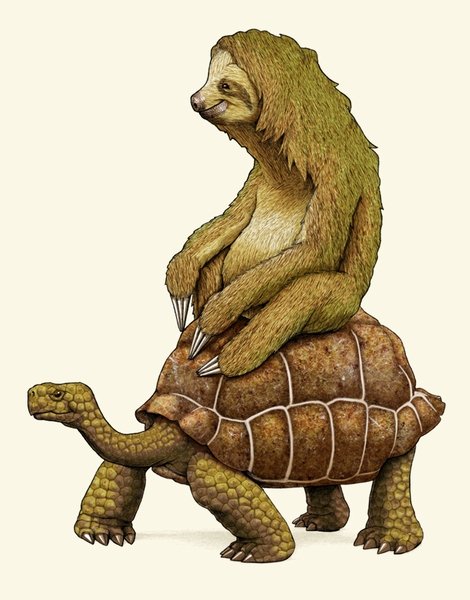 Source
SourceFirst came the trees. That they could live without them, the Thing the animals convinced. It was a small price to pay for change and happiness supreme. One by one, it chopped them down and after a while, iguanas, monkeys, and fowls went to find some other neighborhood where they could keep their livelihood. Mole said he didn’t see the problem; White Cat didn’t hear the tumbling; and Sloth asked to live and let live without so much rumbling. Some animals left, unable to bear a forest without trees. Some others stayed because they believed the Thing. And so, life went on in a forest without leaves.
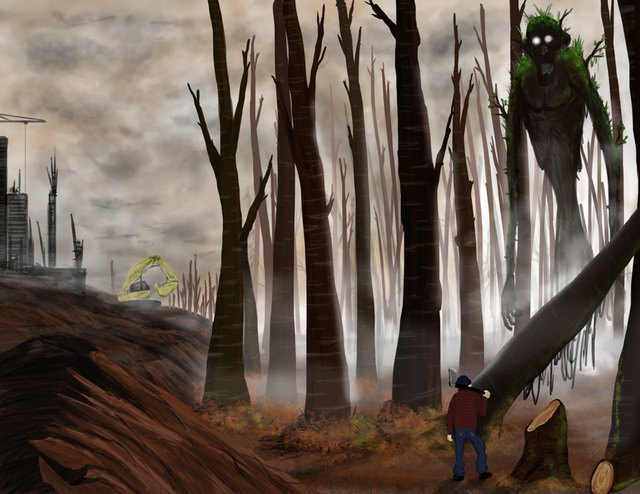 Source
SourceThen came the rivers and lakes. The Thing convinced them progress itself was at stake. It was a small price to pay for change and supreme happiness. It sucked all the sweet water, with all its folk. “No problem”, said Frog. He could walk. The Chachalaca cried louder for help. She warned the animals: “Either water or no time left.” And so, some animals tried to fight the Thing, but still even some water creatures wanted to see what change it would bring.
 Source
SourceMole said he didn’t see any surging; White Cat didn’t hear any gurgling; and Sloth said, “Let’s just move on, without so much purling." Some animals left, unable to bear a forest so dry. Some others thought: “If only we could fly.” And so our story ends without rhyme. And life went on in a forest without trees or creeks.
And finally came the air. With the trees from the forest and the water from the rivers and lakes, the Thing built factories of supreme happiness that promised millions of new and better things for all the animals. The pollution of the air was a small price to pay. And so it happened that the sloth, who had managed to live without trees and without water, started having a hard time living without air.
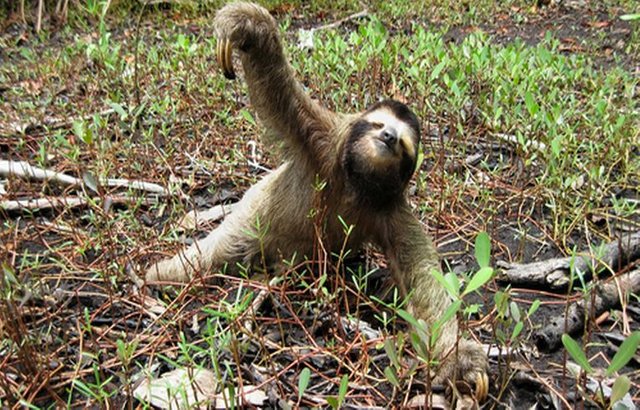 Source
SourceIn its desperation he started to move faster than the hare, and to speak louder than the Chachalaca. It downed on him that the Thing had gone too far. The forest needed to be rescued. He fretted around, shooting orders that ricocheted in the barren mountains. He had a plan, and needed the support of all the animals, he said. They would counter attack from air, water, and land. Birds would use their birdiness and fish their fishiness and running animals their runningness and in an unprecedented effort they would get their forest back and push away the Thing and its supreme misery. But slow as all sloths are, this sloth took some time to realize that it was a bit too late. Like the mole before him, he did not see the new problem; like the white cat, he did not hear any objections to his plan. All the animals had left looking for forests still untouched by the Thing.
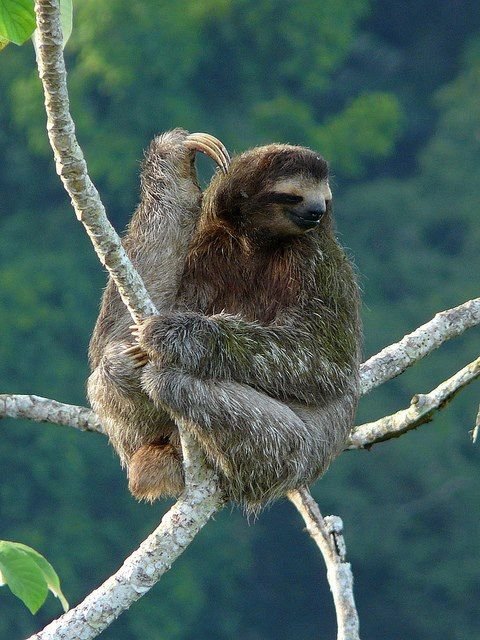 Source
SourceSome say if you listen really hard you can hear the sloth’s ghost gasping for air, giving orders right and left to his imaginary fellow animals, fighting his imaginary war in his now imaginary forest.
Great work. It really shows our reality.
Thanks for the reading and support.